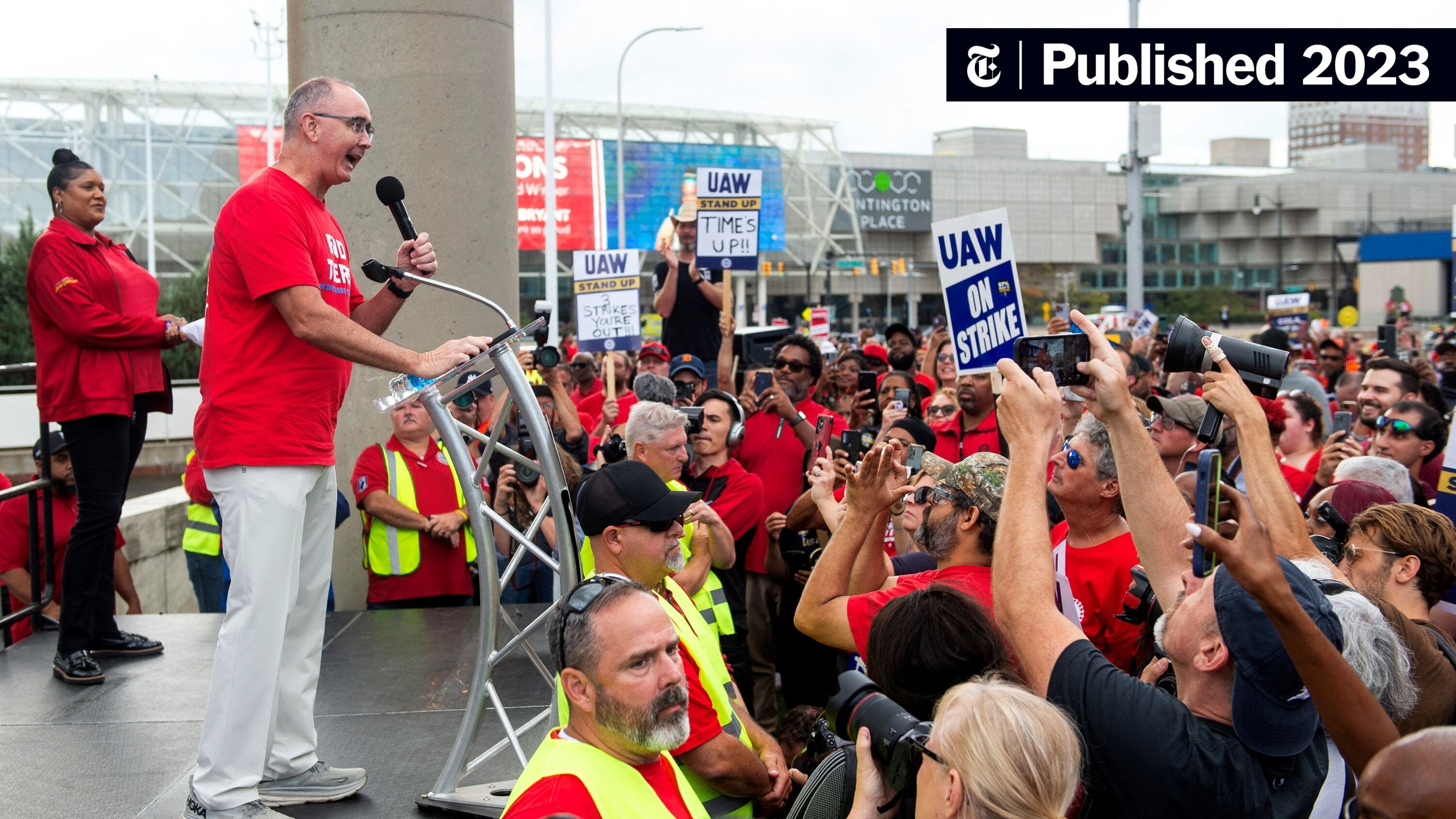Trump's Hardball Tactics: Securing A Republican Agreement

Table of Contents
The Power of Public Pressure and the Bully Pulpit
Trump frequently leveraged the power of public pressure and the "bully pulpit" to influence Republican lawmakers. This involved using social media, particularly Twitter, and large public rallies to bypass traditional negotiation channels and directly appeal to the Republican base. His immense popularity among this base proved a powerful tool in swaying opinions and pressuring party members to fall in line.
- Social Media as a Weapon: Trump's prolific use of Twitter allowed him to instantly disseminate messages, bypassing the filter of traditional media and reaching millions directly. He could praise loyalists and publicly denounce opponents, creating immediate pressure.
- Rallying the Base: Massive rallies served as powerful displays of support, demonstrating the strength of his influence and the potential consequences of defying him. This created a palpable sense of pressure on wavering Republicans.
- Examples: The repeated public pressure on Republican Senators to repeal and replace the Affordable Care Act is a prime example. His tweets and rallies amplified the pressure from his base, significantly impacting the legislative process, even if it ultimately failed.
- Ethical Considerations: The ethical implications of using such tactics are significant. Does the end justify the means? The potential for manipulation and the undermining of democratic processes are serious concerns.
Loyalty and the Reward/Punishment System
Trump cultivated intense loyalty within the Republican party through a sophisticated system of rewards and punishments. This system incentivized compliance and discouraged dissent, shaping the political landscape significantly.
- Rewards: Loyalty was handsomely rewarded. Trump offered endorsements, crucial for securing reelection, provided access to fundraising opportunities, and offered coveted positions within his administration.
- Punishments: Conversely, those who crossed him faced the consequences. Public criticism on social media, threats of primary challenges, and the withdrawal of support could be devastating to a politician's career.
- Examples: Senators who publicly supported Trump consistently received his endorsement and fundraising assistance, while those who opposed him often found themselves facing difficult primary challenges from Trump-backed candidates.
- Long-Term Effects: While effective in the short term, this system created a climate of fear and potentially stifled internal dissent within the party. The long-term impact on party unity and the health of internal debate is still being assessed.
Mastering the Art of the Deal (and the Threat of No Deal)
Trump's negotiation style was characterized by his aggressive pursuit of ambitious goals and a willingness to employ brinkmanship. The threat of "no deal" became a powerful tool in his arsenal, often forcing compromises from Republican lawmakers.
- High-Stakes Negotiation: Trump consistently set ambitious goals, pushing the limits of what was politically achievable. This created a sense of urgency and encouraged concessions from the other side.
- The Power of the Ultimatum: He was not afraid to issue ultimatums, leveraging the potential consequences of inaction to sway opponents. This high-pressure approach often proved effective.
- Examples: Negotiations on the budget, tax cuts, and judicial appointments frequently involved the threat of government shutdowns or other forms of political paralysis to secure concessions.
- Comparative Analysis: Comparing Trump's style with more conciliatory approaches reveals the stark contrast in political negotiation strategies. His hardball tactics are a departure from traditional bipartisan consensus-building.
Exploiting Internal Divisions Within the Republican Party
Trump skillfully exploited existing factionalism within the Republican party to advance his agenda. He played different factions—conservative hardliners, moderate Republicans, and libertarian-leaning members—against each other to his advantage.
- Dividing and Conquering: Understanding the differing priorities and ideologies within the party, Trump could tailor his messaging to appeal to specific groups and secure their support, often while undermining opponents.
- Factions and Viewpoints: The Republican party encompasses a broad spectrum of views, from fiscal conservatives to social conservatives. Trump adeptly navigated these divisions, using the internal conflicts to bolster his own position.
- Examples: During the debates over immigration, Trump skillfully used the divisions within the Republican party to secure support for his stricter policies.
Conclusion
Donald Trump’s hardball tactics, including public pressure, a reward/punishment system, and masterful dealmaking, significantly impacted his ability to secure agreements within the Republican party. While effective in the short term, the long-term effects on party unity and internal dynamics remain a subject of ongoing debate. His strategies highlight a shift in political negotiation, emphasizing the power of direct public engagement and personalized incentives. Understanding his approach to securing Republican agreement offers vital insights into the complexities of modern political maneuvering.
Call to Action: To further explore the intricacies of Trump's political strategies and their impact on the Republican party, read more articles analyzing his dealmaking and negotiation tactics. Understanding these "hardball tactics" is crucial for navigating the complexities of modern political agreement and securing support within the Republican party.

Featured Posts
-
 El Elegante Lino Otonal Segun Charlene De Monaco
May 25, 2025
El Elegante Lino Otonal Segun Charlene De Monaco
May 25, 2025 -
 Rekordnoe Kolichestvo Svadeb Na Kharkovschine 89 Par Vybrali Krasivuyu Datu
May 25, 2025
Rekordnoe Kolichestvo Svadeb Na Kharkovschine 89 Par Vybrali Krasivuyu Datu
May 25, 2025 -
 Jenson Buttons Post Theft Plans No Return To The Uk
May 25, 2025
Jenson Buttons Post Theft Plans No Return To The Uk
May 25, 2025 -
 Euroleague I Vathmologia Meta Ti Niki Tis Monako Epi Tis Pari
May 25, 2025
Euroleague I Vathmologia Meta Ti Niki Tis Monako Epi Tis Pari
May 25, 2025 -
 Monaco Nice L Effectif Convoque Pour La Rencontre
May 25, 2025
Monaco Nice L Effectif Convoque Pour La Rencontre
May 25, 2025
